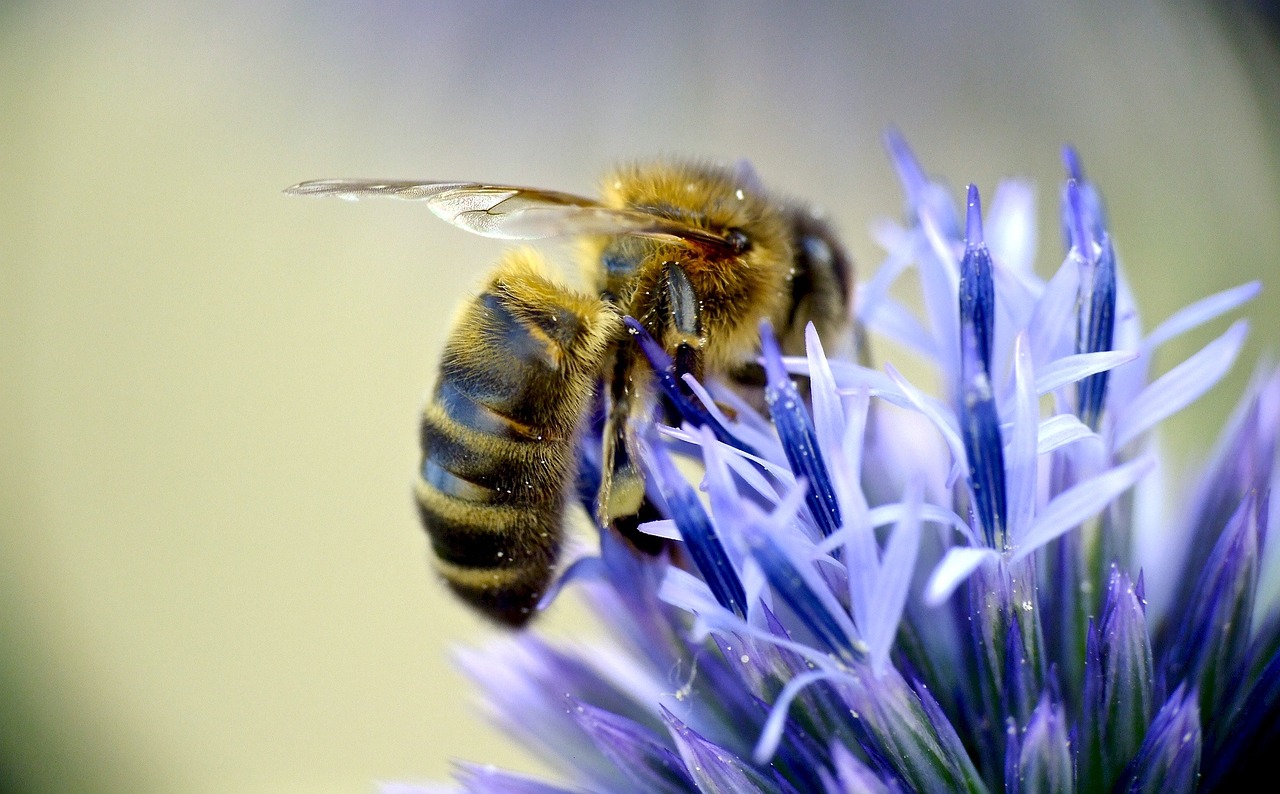The Minnesota Environmental Partnership is proud to feature the following post as part of a series of columns as part of a Student Voices Series issues. This is part of a continuing collaboration with Macalester College’s Geography Department and its students.
Think about what you have eaten so far today. Did you have any apples or almonds? How about coffee or carrots or cherries? If current trends in bee populations continue, these foods may be gone within the next generation.
Bee colonies across the country are dying in record numbers- 42.1 percent of bee colonies died last year, according to the Bee Informed Partnership, a coalition of research laboratories and universities. That wasn’t an anomaly, but rather the continuation of a pattern that is increasingly worrisome, since the partnership estimates that one third of the food we eat is pollinated by bees. As we buzz ahead toward the winter months, a time that traditionally has the most colony deaths, a frightening uncertainty looms ahead. How many bee colonies will we lose this year? What will that mean for the nation’s food supply?
While research shows that the causes of this severe population collapse are numerous and varied, many scientific experts agree that pesticide exposure, diseases, and parasitic mites are pivotal factors in these deaths. Of these, humans are linked most directly to pesticide exposure. By lacing our food with chemicals to protect it from pests, we are harming one of the most integral yet vulnerable parts of our agricultural system. The main culprit is a class of agricultural insecticides called neonicotinoids, or neonics. These toxins do their job as insecticides remarkably well, but the problem is that they harm bees as well.
Penn State researchers and the Xerces Society noted recently that neonics are making honey bees more vulnerable to parasites and pathogens, two other central factors in the demise of bee colonies. The report goes on to state that neonics can give honeybees “problems with flying and navigation, reduced taste sensitivity, and slower learning of new tasks, which all impact foraging ability.” Together, these factors harm bees and leave them increasingly susceptible to the hardships of the winter months.
With our pollinators at their most vulnerable, we must act now to pass legislation that will protect bees in the years to come. Fortunately, such a measure already exists. The Saving America’s Pollinators Act of 2015 was introduced by Representative John Conyers (D-MI) to the House Committee on Agriculture in March. It requires that the Environmental Protection Agency ban dangerous neonics and monitor the populations of wild bees and other pollinators. The bill has already been cosponsored by forty-six other representatives, including Minnesotans Richard Nolan, Keith Ellison, and Betty McCollum, but the fight is not over yet. Representative Timothy Walz of Minnesota’s first district is on this committee and Collin Peterson of the state’s seventh district is the committee’s ranking member. Contact them now to make sure they know that Minnesotans care about this bill. It is essential that we act immediately to push this important legislation through Congress and protect these insects that are so integral to our food supply.
Furthermore, prohibiting the use of neonicotinoids on crops is crucial to the continued success of the American economy. It is true that neonics save agricultural giants from having to implement costlier but more sustainable methods of pest management. But even Monsanto, a giant agricultural corporation that creates and uses many neonic products, admits that bees provide more than $19 billion worth of pollination services in the United States alone. The EPA reports that farmers in the U.S. produce $143 billion worth of plant crops total, which means that 7.5% of American crop income is tied directly to the survival of bees. If we want to have an economically sustainable agricultural system, we have to move forward quickly to defend bee populations.
The European Union banned neonicotinoids in 2013 out of concern for pollinator safety and food safety– and it is working. The International Union for Conservation of Nature reports that European bees are dying at much slower rates. The precedent has been set. The United States must enact the Saving America’s Pollinators Act to maintain the integrity of our agricultural system and our ability to feed ourselves. Let your representative know that you support this legislation. The future of our agriculture is worth it.
Maya Swope is a sophomore at Macalester College, where she studies Environmental Studies and Geography. She grew up raising bees in New Hampshire.
